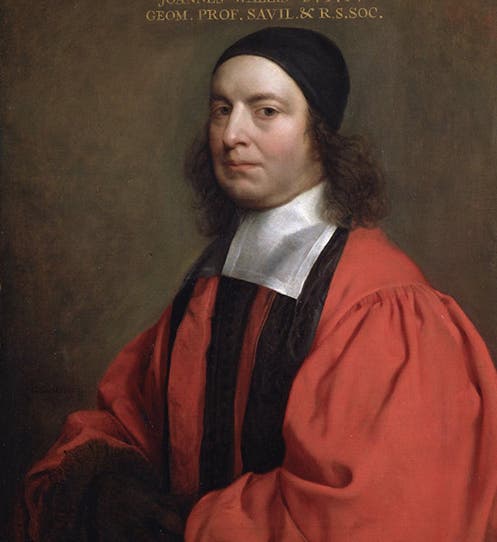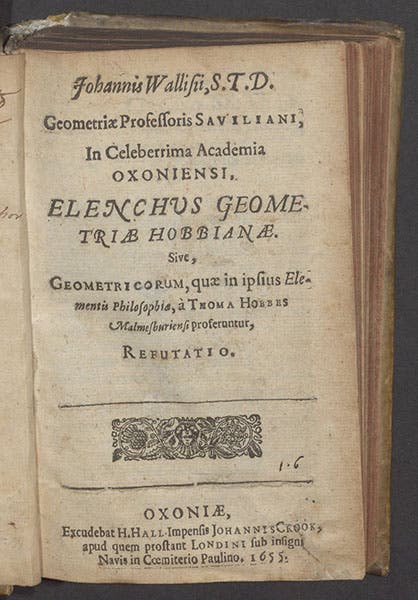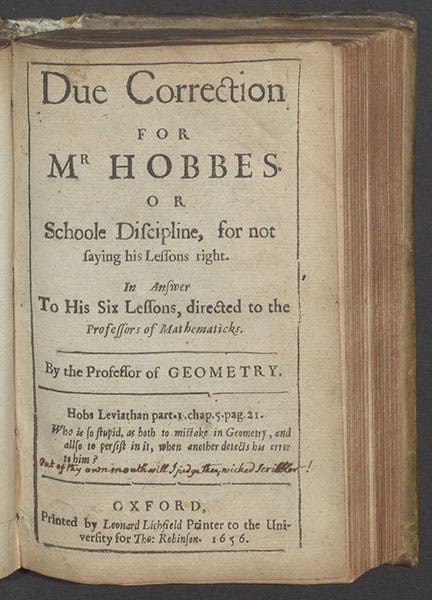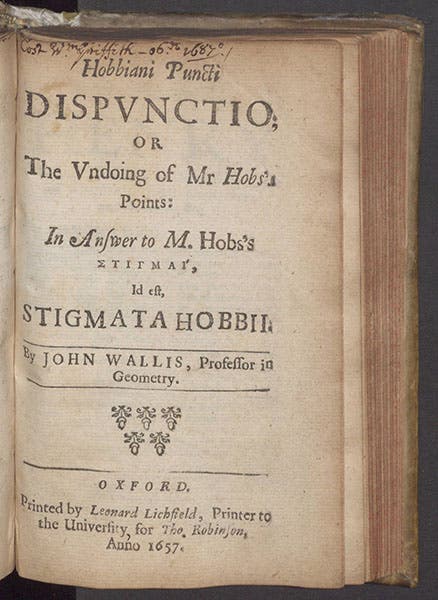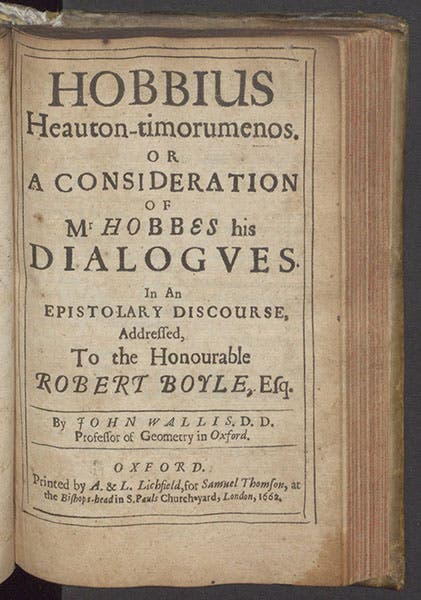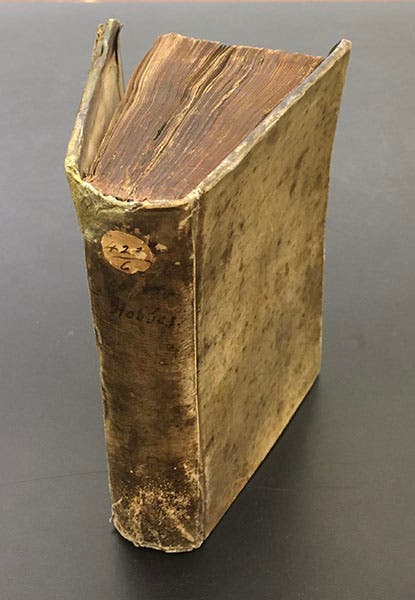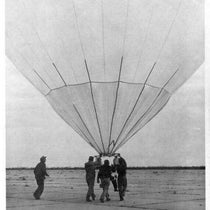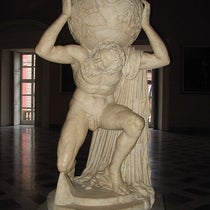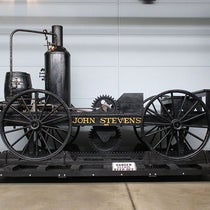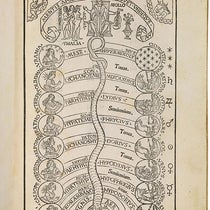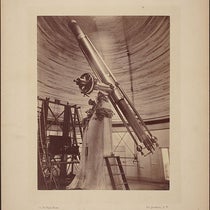Scientist of the Day - John Wallis
John Wallis, an English mathematician, was born Dec.3, 1616. Wallis studied at Cambridge and was an ordained minister serving in various capacities throughout the 1640s, when out of the blue, in 1649, he was appointed the Savilian Professor of Geometry at Oxford, a position he would hold until his death iin 1703. Sometimes an appointment can make the man; it was certainly true in this case, as Wallis became one of the most distinguished mathematicians of Restoration England. Wallis also had a fondness for controversy, and a considerable lack of modesty, which led to his engagement in a number of vitriolic exchanges, especially with the Monster of Malmsbury, Thomas Hobbes. We are going to pursue that thread today, in order to highlight an unusual sammelband that we have in our collections.
Wallis, like the rest of the group who would form the future Royal Society of London in 1660, had little use for Hobbes, whom he regarded as a materialist, a foe of established religion, a disparager of university education, and, when Hobbes ventured into geometry, an incompetent mathematician. So when Hobbes decided at the last minute to add a chapter on his successful (so Hobbes thought) solution to the classical problem of squaring the circle to his sizeable treatise De Corpore (On Body) of 1655, Wallis came out swinging. In his Elenchus geometriae Hobbianae, which came off the press only two months after Hobbes’ De corpore, Wallis attacked Hobbes’ method, and by implication, his scholarship and character.
Hobbes responded with his own treatise, defending his method, which provoked a renewed attack by Wallis, Due correction for Mr. Hobbes. Or Schoole discipline, for not saying his lessons right (1656), in which Wallis went further and accused Hobbes of plagiarizing from Bonaventura Cavalieri. A third treatise by Wallis, Hobbiani puncti dispunctio (1657), with its own explanatory subtitle: or, the undoing of Mr. Hobs's Points, responded to a further Hobbes’ response.
Matters cooled for a while, until Hobbes in 1661 published a treatise in which he claimed to have duplicated the cube, another classical problem similar to that of squaring the circle, and Hobbes then attached it to a published essay critical of Robert Boyle, his air pump, and the Royal Society. This was too much for Wallis, and he responded with his Hobbius Heauton-timoeumenos (1662), in which Wallis took aim at Hobbes’ attempted duplication of the cube, and then the convoluted history of Hobbes’ failed attempts to square the circle.
Controversies like this were not unusual, especially during the first decade of the Royal Society; in fact, not so long ago, we wrote a post on Joseph Glanvill, an apologist for the Royal Society who engaged in the same kind of pamphlet attack and counterattack. But the Wallis diatribes are of special interest to us, because an early, perhaps contemporary, fan of Wallis gathered up the four treatises we have discussed and had them bound up in one volume, which we now have in our collections. The controversy went on until Hobbes’ death in 1679; perhaps someday we will acquire another sammelband that contains the rest of these polemics.
We acquired our set of the four Wallis diatribes in 2003, from London bookseller William Patrick Watson. We were motivated to acquire it because two years earlier, we had bought Hobbes’ De corpore from New York City bookdealer Jonathan Hill. So we are now a good place to visit if you wish to pursue the first 7 years of the Wallis-Hobbes controversy. We advise you, though, that Douglas Jesseph has pretty much covered the bases in his Squaring the Circle: The War between Hobbes and Wallis (University of Chicago Press, 1999).
Dr. William B. Ashworth, Jr., Consultant for the History of Science, Linda Hall Library and Associate Professor emeritus, Department of History, University of Missouri-Kansas City. Comments or corrections are welcome; please direct to ashworthw@umkc.edu.

